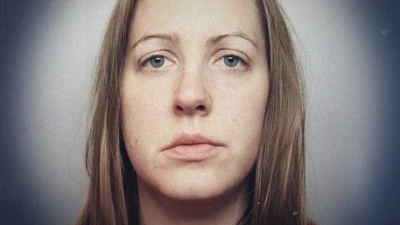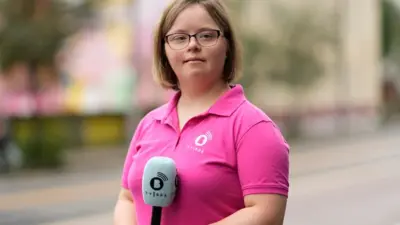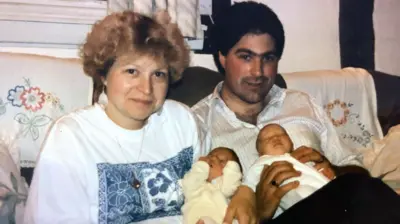We've updated our Privacy and Cookies Policy
We've made some important changes to our Privacy and Cookies Policy and we want you to know what this means for you and your data.
Can the teaching of history make us more British?
- Author, John Bew
- Role, В鶹№ЩНшКЧТіИлїЪ Radio 4, Analysis
The Conservatives were once sceptical about whether the state could and should promote a shared sense of British identity. But their views are changing.
Before Gordon Brown left Downing Street, he tried to start a national discussion about what Britishness is, which included a national roadshow.
But very few people participated and the Conservative Party's response to the idea was hostile. David Cameron saw the exercise as too American for British tastes, saying dismissively that in Britain we "don't do flags on the lawn".
Some Conservatives thought that even talking about "identity issues" was to make a concession to the Left. But the sound of distinctly British accents on the 7/7 bombers' suicide videos apparently caused some leading Tories to rethink their party's position.
'Integrate minorities'
The new Security minister, Baroness Pauline Neville-Jones, has said the government should actively "promote the integration of minority communities" and that, in order to do so, we need a stronger sense of our British identity.
"What Englishness can't do that Britishness can do is appeal unambiguously to people of different ethnic origins," notes Janan Ganesh, political correspondent for The Economist.
But how can government make us feel more British?
A new idea from the Conservatives is to promote the teaching of more British history in schools.
Education Secretary Michael Gove has said that many people in Britain have a "radically impoverished" understanding of the country's history.
At the Hay Literary Festival in May this year, he reached out to the Harvard Professor, Niall Ferguson, who shares this concern.
He claims that school leavers tend to know more about the American civil rights movement and Adolf Hitler than any figure in British history. "That's obviously absurd," he says, "people live here, they spend most of their time here, they need to understand this place."
But if government is going to insist that there is a change in the way that British history is taught in schools, what is it going to change to?
In reacting against the multi-cultural and fragmented way in which history has been taught since the 1970s, there is a danger that the pendulum could swing too far the other way.
Free market education
Some analysts fear that we might end up returning to a rather narrow version of our past: about institutions which might seem increasingly remote to a lot of people - a "top-down" story of kings, queens and parliaments.
Professor Ferguson's preference is for a free-market education, where the consumer, in this case the school, chooses the curriculum.
This seems to fit well with the whole thrust of the coalition's education policy, which emphasises de-centralisation and local control.
How does it square with the growing belief that we need to teach more British history in schools?
If, as planned, the government outsources the running of schools to more private sector and voluntary providers, we are likely to see a growth in religious schools, each teaching their own sectarian narrative rather than a unifying version of British history.
The education secretary might decide he is not prepared to grant state funding to, say, a Muslim-run school which teaches its children that their history is that of the Muslim ummah.
Flags on the lawn may not be on the agenda but a more top-down approach to generating patriotism is.
Top Stories
More to explore
Most read
Content is not available








